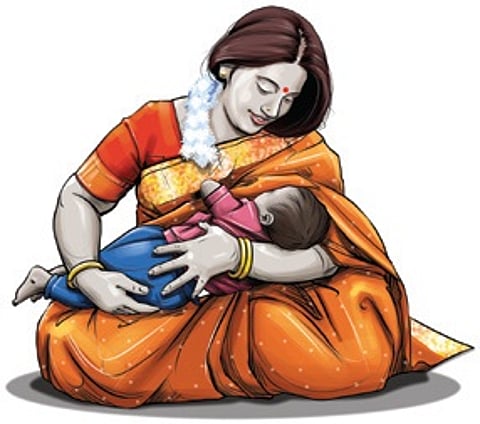

BENGALURU: In a bid to reduce the neonatal mortality rate in the state, the Karnataka Health Department has revised several plans, including extending ASHA worker care visits to 15 months from the previous 42 days, to continuously monitor the growth and development of the baby.
In acute cases, post-discharge screening for vision and hearing will also be conducted to identify and manage sensory impairments early, and community-level post-discharge care will be provided to ensure timely referrals and support tailored to local needs, department sources said.
Currently, seven city hospitals are equipped with neonatal intensive care units (NICUs), including Bowring Hospital, Vanivilas Hospital, and KC General Hospital, among others. A baby is placed in an NICU when it needs specialised care. This typically occurs in cases such as prematurity, birth complications, low birth weight, or infections.
According to 2020 data, the neonatal mortality rate in Karnataka was 14 per 1,000 live births. The department now aims to reduce this rate to 9 per 1,000 live births. Below the target rate, experts highlight that despite medical interventions, in conditions like immaturity of vital organs, ‘anencephaly’ where a baby is born without a brain or skull, or severe heart defects, or extreme prematurity, where the child is born before the viability threshold – around 22-24 weeks of pregnancy, can result in fatalities.
Noting that neonatal fatalities often happen due to complications like prematurity, birth asphyxia (occurs when a newborn does not receive enough oxygen before, during, or immediately after birth), infections, and congenital anomalies, the department revised certain measures in the Home-Based Young Child Care (HBYC) practices.
Dr Basavaraj B Dhabadi, Deputy Director of Child Health at Department of Health and Family Welfare explained that to prevent neonatal fatalities, critical measures are being taken, including regular visits to monitor the health of the baby, and to detect and address any potential complications early.
He added that starting from this World Breastfeeding Week (first week of August), early initiation of breastfeeding, which involves starting it within the first hour after birth, is emphasised as a critical practice. Dr Dhabadi also mentioned that experts are instructed to ensure that breastfeeding begins within the crucial time-frame. If a mother is unable to initiate breastfeeding within an hour or if a newborn is unable to latch on, healthcare facilities will support the infant with extracted mother’s own milk (MOM) to ensure that the baby receives the essential nutrients.